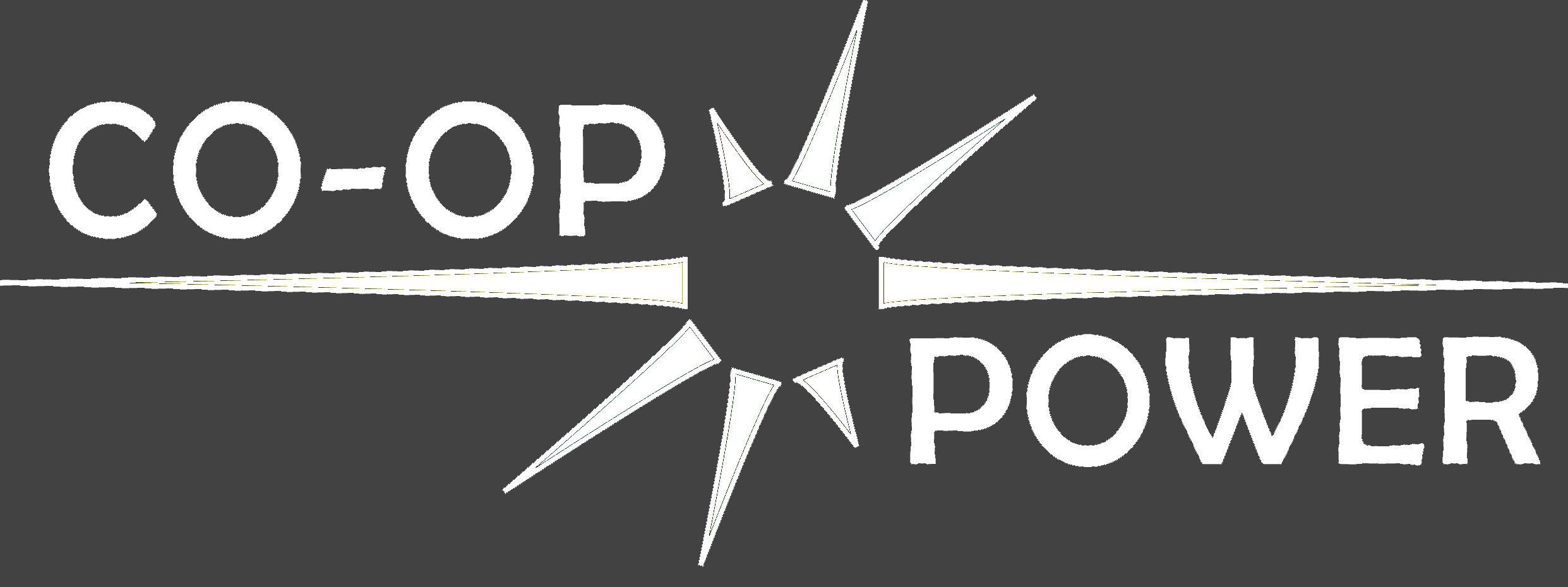Co-op Power wants to ‘Rays the Valley’
/From the Greenfield Recorder article
Co-op Power, a network of community energy cooperatives, is lowering the bar for solar electricity access with its “Rays the Valley” programs.
Working with Community Action, Climate Action Now and Mothers Out Front, the co-op network is signing up participants for a series of solar projects, with several more planned for next year.
The collaborative was one of only 35 groups to be awarded a “Solar in Your Community” competitive grant from the U.S. Department of Energy’s SunShot Initiative to broaden the access to solar power. With the money, 2.5 megawatts of Co-op Power’s solar capacity would be made available to low-income households as well as nonprofit organizations.
While Community Action has long had a energy-efficiency program to reduce energy costs for low-income people, Co-Op Power’s Lynn Benander said, “It’s somewhat unprecedented around here to have Community Action involved in low-income solar projects. It’s really exciting. Community Action is one of the leaders in the nation in figuring out how to make sure low-income people aren’t totally passed by in this solar revolution, where people have access to reducing their energy bills through solar.”
The $60,000 in federal funding, with another $10,000 to provide technical assistance to the co-op, is aimed at getting low-income households and nonprofits, which typically can’t take advantage of federal tax credits as incentives to build their own systems, to sign up for subscription projects.
Benander said she hopes that at least one-quarter of the people who sign up for a 3,000 kilowatts of solar that’s been developed in four Berkshire County sites will be low-income users.
A typical household needs between 5 to 10 kilowatts, according to Mark Skinder of Co-op Power.
That 3-megawatt Berkshire development for the four sites, which is awaiting hookup by Eversource, will be augmented with another 2.8 megawatts, which is being developed for use by municipalities, with another 2.8 megawatts planned to be built next year, Benander said.
“We’re doing solar for everybody. Anyone can sign up,” she said, providing that they first join the co-op. Membership costs begin as low as $250, which can be spread over 10 years. The no-money-down subscription solar has the benefit of providing 15 percent discounts off monthly electric bills is designed for people who can’t make use of tax credits and don’t have access to a good site for a solar array.
Co-op Power, which Benander says has been working on solar projects for 15 years, also has a direct-owned community solar program where members can buy part of a PV system on a shared site, for people who don’t have access to their own solar site. For that program, as well as a direct-owned solar program, income-qualifying members can get 20 to 30 percent off the cost of the system.
Through Co-op Power’s “use of novel funding and ownership models,” nonprofits can reduce their electricity bills with no money down. By partnering with lenders and socially responsible tax equity investors to build roof or ground-mount arrays on the nonprofit’s property, the system will be transferred to the nonprofit after 5 to 7 years of receiving discounted electric bills.
Benander said the co-op has been working with project developers and on its own on projects across western Massachusetts that are between 10 kilowatts and 1 megawatt in size. But, she said it has had difficulty finding sites in Franklin County.
Plans for a 595-megawatt photovoltaic project at the Greenfield Industrial Park, near Co-op Power’s Northeast Biodiesel plant, fell apart when Eversource wanted to charge a $688,000 interconnection fee, Benander said. “We’re still looking at ways to do that. Franklin County’s been a tough nut to crack.”
She added that the co-op has found it easier to work with National Grid on projects.
In addition to that 2.5 megawatts it plans to build, Co-op Power is seeking subscribers for a 3 megawatt project as well as a 2.8 megawatt solar project for municipalities, with another 2.8 megawatt community solar project in 2018, according to Benander.
In hopes of signing up 400 customers by mid-August, its Franklin Community Energy Co-op has scheduled three informational meetings: July 20 from 7 to 8:30 p.m. at Greenfield Community College’s downtown campus, July 27 from 6:30 to 8 p.m. at McCusker’s Market in Shelburne Falls and Aug. 3 from 7 to 8:30 p.m. at Millers River Environmental Center in Athol.




